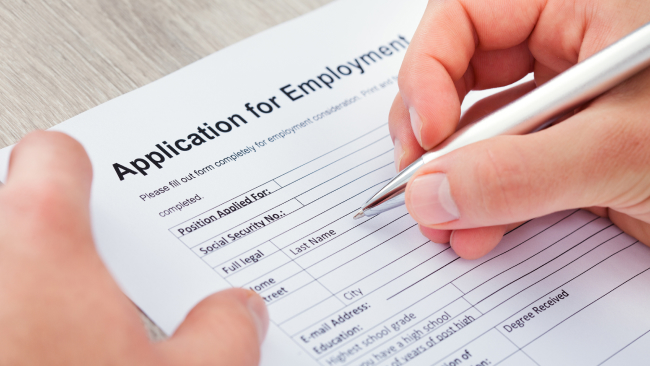In today’s dynamic labor market, job seekers are frequently confronted with a landscape marked by rapid change and uncertainty. The interview process, traditionally a structured gateway to employment, has evolved into a multifaceted challenge where candidates must navigate not only the expectations of prospective employers but also the complexities introduced by external factors such as economic fluctuations, technological advancements, and shifting industry standards. This article aims to provide a comprehensive framework of strategies to equip candidates with the tools necessary to excel in job interviews amid these uncertainties. By leveraging evidence-based techniques and psychological insights, we will explore methods for effective preparation, adaptability during the interview, and post-interview follow-up, thus enabling job seekers to present themselves as resilient and competent candidates in the face of unpredictability. Whether you are a recent graduate or a seasoned professional, understanding and implementing these strategies can significantly enhance your interview performance and increase your chances of securing desirable employment opportunities.
Table of Contents
- Understanding the Dynamics of Uncertainty in Job Interviews
- Developing a Structured Approach to Anticipate Interview Questions
- Enhancing Confidence Through Preparation and Self-Assessment
- Leveraging Effective Communication Techniques to Conquer Anxiety
- Closing Remarks
Understanding the Dynamics of Uncertainty in Job Interviews
In the realm of job interviews, uncertainty is an inevitable factor that candidates must navigate. The fluctuating dynamics can stem from various sources, including unpredictable interviewer behavior, ambiguous expectations, and the inherent subjectivity of recruitment decisions. To effectively manage these uncertainties, candidates should focus on preparation and adaptability. Familiarizing oneself with the company’s culture and the specifics of the role can provide a strategic advantage. By researching common questions and practicing responses, candidates can build confidence and reduce the anxiety that often accompanies the unknown.
Additionally, interpersonal skills play a crucial role in managing uncertainty during an interview. Demonstrating active listening and conveying clear, concise responses can help to mitigate misunderstandings. It is also beneficial to develop a set of strategies for handling unexpected questions or scenarios. Candidates can benefit from employing the following techniques:
- Clarifying the question if it is not understood
- Taking a moment to think before responding
- Using the STAR method (Situation, Task, Action, Result) for structured responses
- Reframing challenges as opportunities to showcase skills
Developing a Structured Approach to Anticipate Interview Questions
To effectively anticipate interview questions, it is essential to adopt a systematic method that encompasses research, reflection, and rehearsal. Begin by investigating the company and the role you are applying for to understand the key competencies they value. Utilize resources such as the company website, LinkedIn profiles of current employees, and industry forums. This foundational knowledge allows you to align your experiences with the company’s mission and challenges. Additionally, reflect on your previous roles, focusing on achievements and obstacles overcome. Create a list of potential questions by considering common themes in job interviews, such as:
- Behavioral Questions: Situational scenarios that reveal how you’ve handled challenges in the past.
- Technical Questions: Assessments of your proficiency in relevant skills.
- Cultural Fit Questions: Gauging your alignment with the organization’s values.
To structure your answers, apply the STAR method – Situation, Task, Action, Result. This framework enhances clarity and persuasiveness in your responses. Additionally, consider maintaining a dynamic spreadsheet to track potential questions and your crafted responses. Below is a simple table that can help organize your thoughts and refine your preparation strategy:
| Question Type | Potential Questions | Key Points to Address |
|---|---|---|
| Behavioral | Describe a time you faced a significant challenge. | Context, actions taken, outcome. |
| Technical | How do you approach problem-solving? | Methodologies, tools used, results. |
| Cultural Fit | What values do you prioritize in a workplace? | Alignment with the company’s mission. |
Enhancing Confidence Through Preparation and Self-Assessment
Preparation is a crucial element in boosting your confidence during job interviews. Engaging in thorough research about the company, its mission, and its industry landscape can significantly enhance your ability to articulate why you are a suitable fit. Additionally, familiarizing yourself with potential interview questions allows you to craft compelling responses, enabling you to present yourself authentically. Consider the following steps:
- Understand the Job Description: Analyze the requirements and preferred skills, aligning them with your experiences.
- Practice Common Questions: Use mock interviews to rehearse your answers and reduce nervousness.
- Gather STAR Stories: Prepare anecdotes using the Situation, Task, Action, Result format to demonstrate your achievements.
Self-assessment serves as a powerful tool in fortifying your self-image as a candidate. By reflecting on your strengths and areas for improvement, you can present a balanced view of yourself. Create a personal SWOT analysis (Strengths, Weaknesses, Opportunities, Threats) to evaluate your professional profile comprehensively:
| SWOT Element | Description |
|---|---|
| Strengths | Skills, experiences, and qualities that give you an edge. |
| Weaknesses | Areas for improvement that you can work on ahead of the interview. |
| Opportunities | Trends or developments in the industry that you can leverage. |
| Threats | Challenges in the job market that you need to navigate. |
Leveraging Effective Communication Techniques to Conquer Anxiety
Effective communication is a powerful tool for mitigating anxiety during job interviews, allowing candidates to express their skills and qualifications confidently. When preparing for an interview, consider practicing the following techniques to enhance your clarity and composure:
- Active Listening: Focus on the interviewer’s questions and respond thoughtfully, demonstrating that you value their inquiry.
- Structured Responses: Use frameworks like STAR (Situation, Task, Action, Result) to organize your answers, providing clarity and reducing nervousness.
- Positive Body Language: Maintain eye contact and an open posture to convey confidence, helping to ease tension in the atmosphere.
- Rehearsal with Feedback: Practice mock interviews with friends or mentors and ask for constructive feedback, which helps refine your communication style.
Additionally, it can be beneficial to understand the role of verbal and non-verbal cues in effective communication. Below is a comparison of these elements:
| Element | Impact on Communication |
|---|---|
| Verbal: Tone, Vocabulary | Conveys confidence, professionalism, and clarity. |
| Non-Verbal: Posture, Eye Contact | Reflects engagement, openness, and reassurance. |
Closing Remarks
effectively navigating uncertainty in job interviews necessitates a multifaceted approach that combines strategic preparation with adaptability. By employing the techniques outlined in this article, candidates can enhance their confidence and communication skills, allowing them to present their qualifications and experiences more compellingly. Emphasizing the importance of research, role-playing, and the ability to articulate thought processes during unpredictable scenarios can significantly mitigate the anxiety often associated with interviews.
Ultimately, embracing uncertainty as an inherent aspect of the hiring process empowers candidates to demonstrate resilience and problem-solving capabilities—qualities highly valued by employers. As the job market continues to evolve, those who adopt these strategies will not only improve their interview performance but also align themselves more closely with the dynamic expectations of prospective employers. In a landscape characterized by volatility, the skills required to navigate job interviews effectively will be indispensable in achieving career success.






